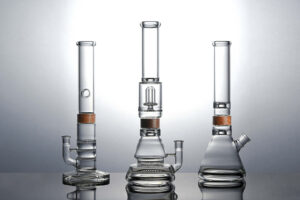Hello everyone,
I am a surgeon and I have glasses. Can you be a surgeon with glasses? I don’t think so. I think you need to be able to see clearly to be a surgeon. I could be wrong though. Let me know what you think in the comments below.
Introduction
There are many different types of surgeons, and each type has different requirements. Some surgeons may need to be able to see very well, while others may not. For example, ophthalmologists, who treat diseases of the eye, need excellent vision, while pediatric surgeons do not need excellent vision.
History of glasses and surgery
Most people know that modern glasses were invented in the 13th century, but few know that the first recorded use of glass for vision correction dates back to ancient Rome. The Roman philosopher Seneca (4 BC-65 AD) wrote about a man who had a glass disc cut to fit his eye socket so he could see better. This man was also a surgeon, and Seneca noted that he had never seen anyone perform surgery with such skill.
The idea of using glass for vision correction was also mentioned in Chinese texts from the same period. In 1268, the English Friar Roger Bacon (1214-1294) wrote about using concave lenses to correct short-sightedness, and in 1604 the German scholar Johannes Kepler (1571-1630) published a treatise on optics in which he described convex lenses for correcting long-sightedness.
The first glasses were made of metal or leather and were held in place by a cord or ribbon tied around the head. In 1784, the American statesman Benjamin Franklin (1706-1790) invented bifocal lenses, which corrected both near and far sightedness in one pair of glasses. In 1887, ophthalmologist Ernst von Frankenstein (1844-1915) developed the first contact lenses made of blown glass.
The first successful surgery to correct vision was performed in 1855 by French ophthalmologist Félix de Régis (1824-1904). The patient was a young boy named René Le Moyne, who had been born with cataracts. Although Régis’s method was very risky, it did improve Le Moyne’s vision and set the stage for modern cataract surgery.
The link between glasses and surgery
Surgeons who wear glasses may be at a higher risk for complications during surgery, according to a new study.
The study, published in the journal JAMA Ophthalmology, found that surgeons who wore glasses were more likely to have complications during surgery than those who did not wear glasses. The study looked at data from more than 1,000 surgeries involving more than 1,000 surgeons.
The study found that the rate of complications was higher for surgeons who wore glasses, with a Complication Rate Ratio (CRR) of 1.48. That means that for every 100 surgeries performed by a surgeon who did not wear glasses, there were 148 surgeries performed by a surgeon who did wear glasses.
The study also found that the type of surgery made a difference in the rate of complications. For example, the rate of complications was higher for cataract surgery than for other types of surgery. The CRR for cataract surgery was 2.43, meaning that for every 100 cataract surgeries performed by a surgeon who did not wear glasses, there were 243 cataract surgeries performed by a surgeon who did wear glasses.
The study’s authors say that the findings “support the need for better education of patients and surgeons regarding the potential risks associated with refractive error.” They say that patients should be aware of the potential risks before undergoing surgery, and that surgeons should take steps to minimize those risks.
The benefits of glasses for surgeons
Glasses have many benefits for surgeons, including the following:
-They help surgeons to see more clearly and accurately.
-They can help to reduce eye fatigue during long surgeries.
-They can help to protect the eyes from debris and other potential hazards.
In conclusion, glasses are a valuable tool for surgeons and can help them to perform their duties more effectively.
The drawbacks of glasses for surgeons
While glasses are not necessarily a hindrance for surgeons, there are some potential drawbacks that should be considered. First and foremost, glasses can fog up during surgery, which can obscure the surgeon’s vision. Additionally, glasses can get in the way when surgeons are scrubbing in and can be uncomfortable to wear for long periods of time. Finally, glasses can present a risk of infection if they are not properly sterilized.
The best type of glasses for surgeons
There are a few different types of glasses that surgeons can wear, but the best type of glasses for surgeons is the type that has been specifically designed for surgeons. These types of glasses have a number of features that make them ideal for surgeons, including:
-They have a special coating that helps to prevent reflections from surgical lights.
-They have a special design that gives the surgeon a wider field of view.
-They are made from a lightweight material that is comfortable to wear for long periods of time.
How to care for your glasses as a surgeon
While you may be an excellent surgeon, you need to take care of your glasses to ensure that you can see clearly while performing surgery. Here are a few tips:
-Clean your glasses regularly with soap and water or a lens cleaner.
-Be sure to clean the frame as well as the lenses.
-Use a soft, lint-free cloth to dry your glasses.
-If you wear contact lenses, be sure to clean them according to the manufacturer’s instructions.
- Store your glasses in a safe place when you’re not wearing them.
Conclusion
Yes, you can absolutely be a surgeon if you wear glasses. In fact, there are many surgeons who wear glasses or contact lenses while they operate.
There are a few things to keep in mind, though. First, you will need to make sure that your glasses are clean and free of any smudges or fingerprints. This is because surgery is all about precision, and you need to be able to see clearly in order to make the correct incisions.
Second, you will need to make sure that your glasses fit well so that they don’t fall off while you are operating. This might mean that you need to get special frames that stay put more securely on your head.
And finally, you will need to be extra careful when sterilizing your instruments. This is because glass is a material that can break easily and cause infection if not properly sterilized.
So as long as you keep these things in mind, there is no reason why you can’t be a successful surgeon even if you wear glasses.












